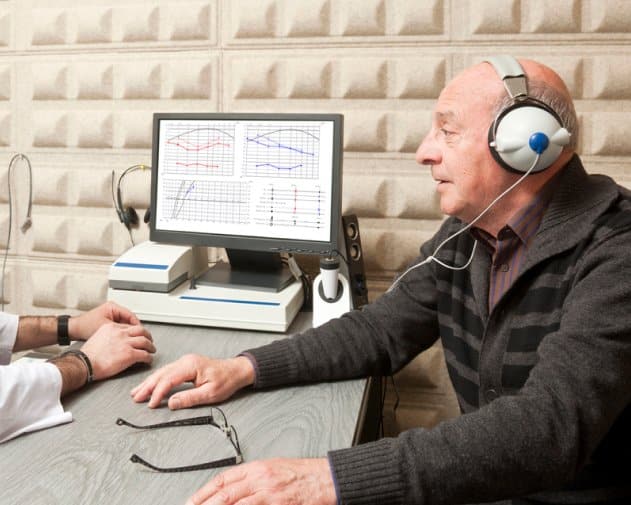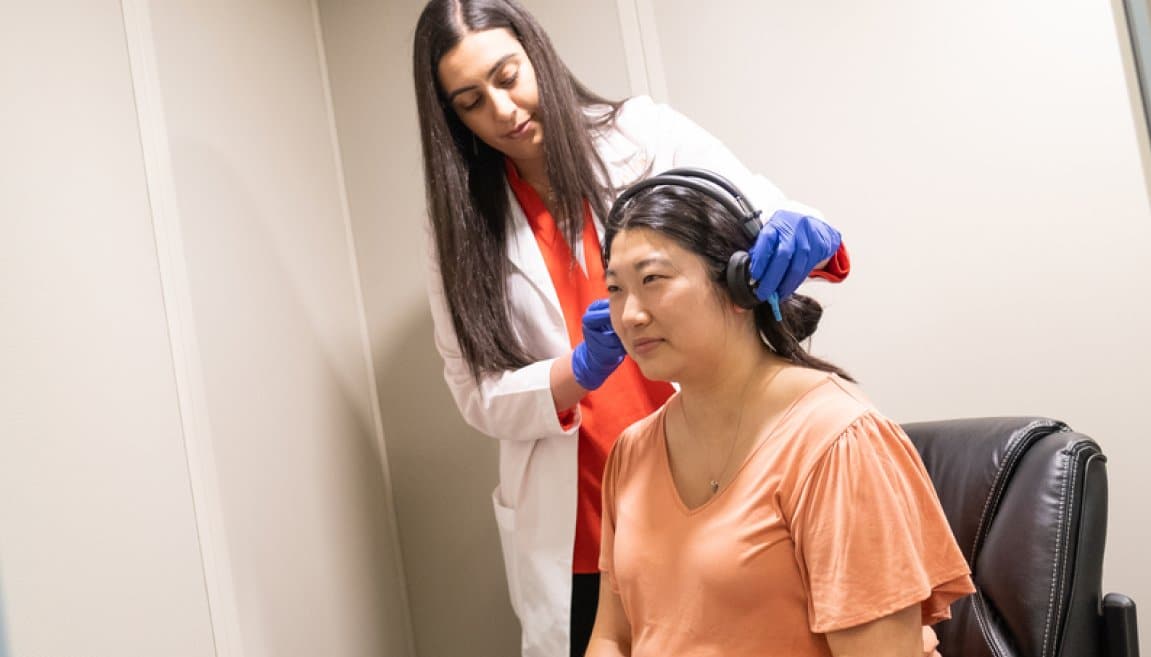

How is hearing loss diagnosed?
In order to diagnose hearing loss, your audiologist will review your medical history, discuss your symptoms, physically examine your ears and complete a hearing evaluation consisting of a series of audiological tests. A hearing exam may involve one or more of the following:
- Pure Tone Testing
- Bone Conductive Testing
- Speech Testing (In quiet and noise)
- Typanometry
- Acoustic Reflex Testing
- Auditory Brainstem Response (ABR)
- Otoacoustic Emissions (OAEs)
Types of hearing loss
Treatment will depend on your type and degree of hearing loss.
There are three types:
- Sensorineural hearing loss is the most common type of hearing loss. It involves a problem with the inner ear. Sensorineural hearing loss is usually treated with hearing aids.
- Conductive hearing loss occurs when there are problems in the outer ear, ear canal, eardrum or middle ear. Conductive hearing loss is often correctable with surgery or medications (typically antibiotics). Alternatively, it may be treated with hearing aids.
- Mixed hearing loss is a combination of both types. Treatment might involve a combination of medication, surgery and/or hearing aids.


Benefits of treating hearing loss
Individuals who seek treatment for their hearing loss see improvements in all aspects of their lives.
Researchers agree that treating your hearing loss can lead to better overall health, professional success and emotional well-being.

